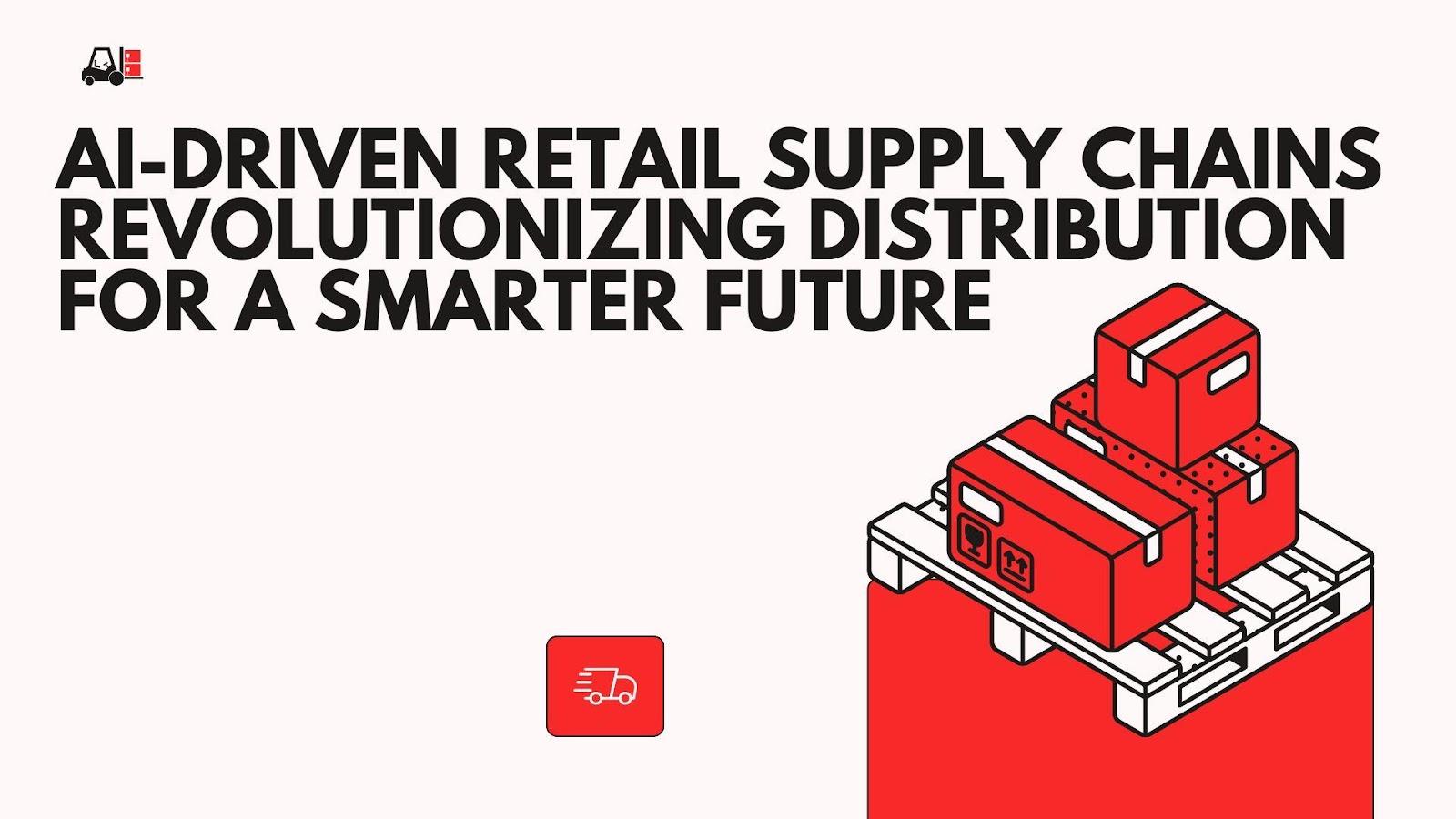The Dawn of AI in Retail Logistics, Srinivas Ankam, a thought leader in AI-driven supply chain innovations, explores how artificial intelligence is reshaping retail distribution. His research uncovers the profound impact of AI on optimizing operations, reducing inefficiencies, and enabling real-time decision-making in global enterprises.
Addressing Retail Supply Chain Challenges
Retail distribution has long struggled with balancing cost efficiency, sustainability, and demand forecasting. Traditional systems often rely on static data, leading to supply chain disruptions, excessive inventory, and lost sales. AI, however, introduces predictive analytics and automated decision-making, enabling enterprises to dynamically adjust operations. With AI-enabled optimization, studies suggest that CO2 emissions in retail distribution could be reduced by up to 45%, aligning businesses with sustainability goals.
AI’s Evolution in Retail Supply Chains
The adoption of AI in retail is growing at an unprecedented rate, with the market projected to expand at a compound annual growth rate (CAGR) of 26.8% from 2023 to 2030. Innovations such as machine learning, natural language processing, and computer vision are transforming inventory management and customer engagement. Predictive analytics is particularly vital, helping businesses accurately forecast demand and optimize stock levels, reducing waste and improving profitability.
Smart AI Architectures: The Backbone of Optimization
Modern AI architectures in supply chain management integrate multiple technologies, enhancing efficiency by 32.7% compared to traditional methods. Deep learning models enable demand forecasting with a remarkable accuracy rate of 87.3%, significantly outperforming conventional statistical techniques. Additionally, AI-powered distributed networks process supply chain data at a faster rate, reducing latency and improving responsiveness to market fluctuations.
Data-Driven Decision Making
The strength of AI in supply chains lies in its ability to process vast amounts of data efficiently. Hybrid learning models analyze real-time operational parameters, identifying disruptions with high precision. These insights allow businesses to proactively adjust supply levels, mitigating the risk of stockouts or overstocking. Furthermore, AI-driven analytics have demonstrated a 42% increase in inventory turnover rates, optimizing cash flow and reducing holding costs.
Overcoming Integration Challenges
Despite its advantages, AI implementation presents challenges, particularly in data integration and infrastructure scalability. Studies indicate that successful AI adoption depends on well-structured data governance frameworks, with organizations implementing such systems reporting a 76.3% higher success rate. Additionally, businesses investing in robust AI infrastructure have experienced a 54.8% increase in resource allocation efficiency, emphasizing the need for a strategic approach to AI deployment.
AI’s Role in Enhancing Customer Satisfaction
Retailers leveraging AI for supply chain management have reported a 45% improvement in customer satisfaction. Faster fulfillment, improved product availability, and real-time tracking capabilities contribute to a seamless shopping experience. AI-driven markdown optimization has also led to a 16% increase in gross margins by dynamically adjusting pricing based on demand trends.
Future Trends in AI-Enabled Retail Logistics
Looking ahead, AI is expected to play a pivotal role in shaping the future of retail supply chains. Predictive analytics adoption has surged by 45% year-over-year, helping businesses anticipate market demands with greater accuracy. Additionally, AI-powered automation is streamlining warehouse operations, reducing manual errors by 42.3% and enhancing operational efficiency.
In Concuslion,AI-driven supply chain optimization is revolutionizing retail logistics, offering businesses the ability to enhance efficiency, reduce costs, and improve sustainability. The research by Srinivas Ankam underscores the transformative potential of AI in supply chain management, paving the way for a more adaptive and intelligent retail ecosystem. As businesses continue to embrace AI technologies, the future of retail distribution will be defined by data-driven decision-making and seamless automation.



































